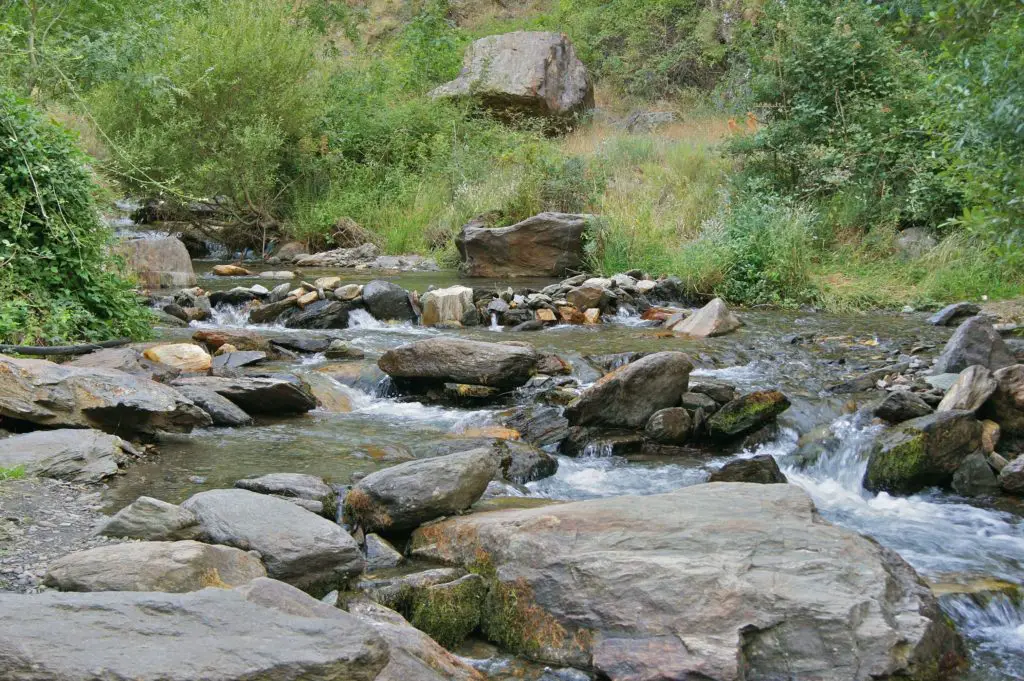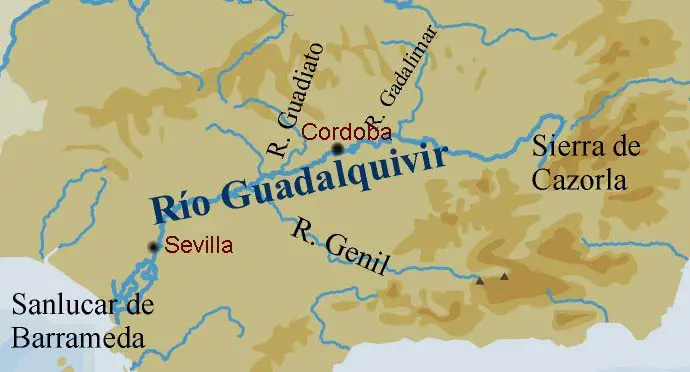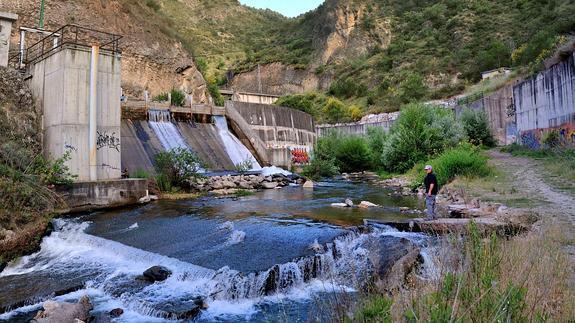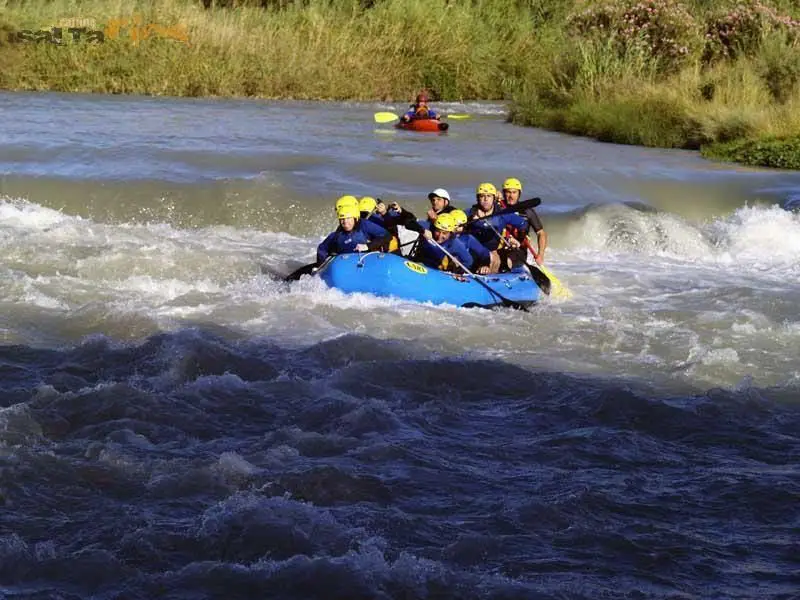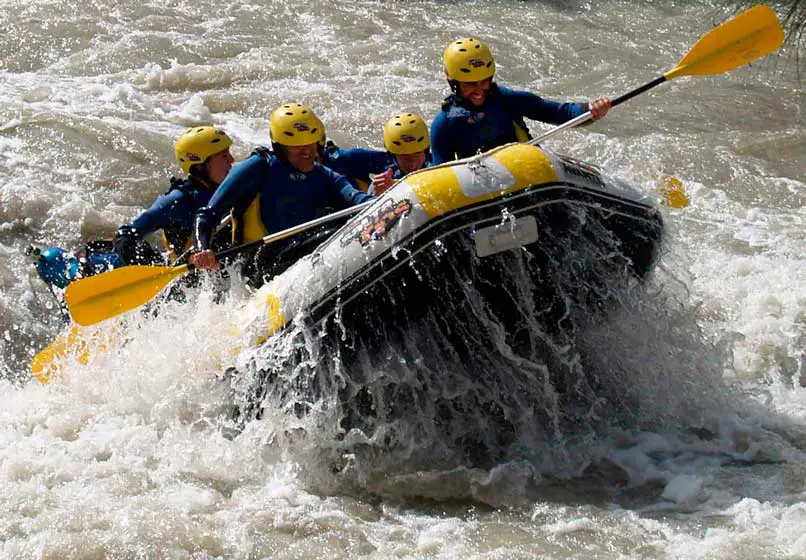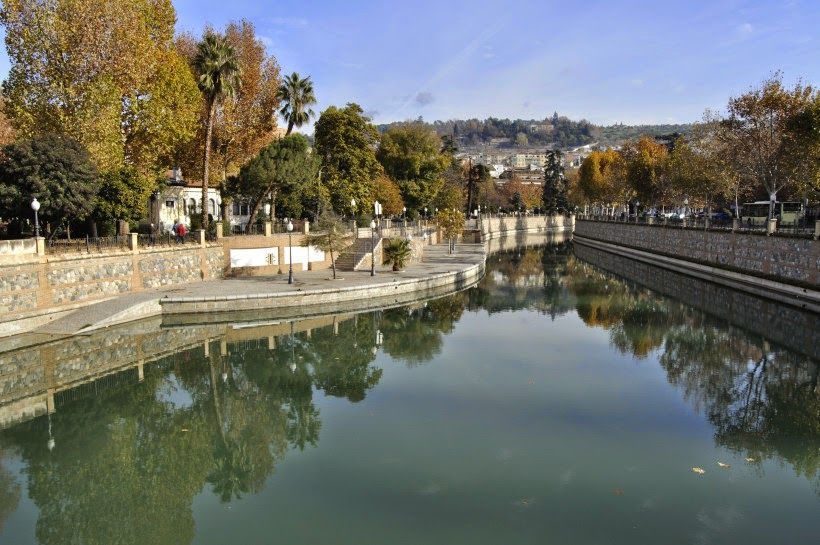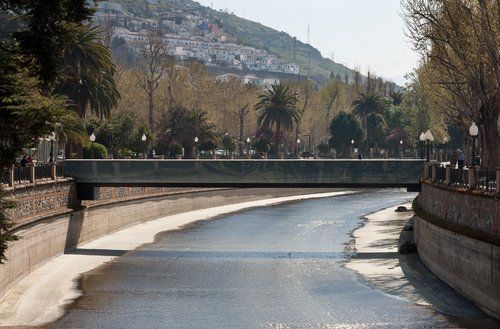The river Genil is the main (left) tributary of the Guadalquivir in Andalusia, Spain. The Roman Singilis, its modern name derives from the Moorish rendering of the Roman name: Sinyil, Sannil and Sinnil.
Indice De Contenido
Source and course of the river Genil
The Genil rises in the Sierra Nevada, north of its highest peak, Mulhacén. The Genil flows through the towns of Granada, Loja, Puente Genil and Ecija (see article: Río Turbio).
It joins the Guadalquivir at Palma del Río. Its main tributary is the Darro.
Map of the river Genil
Geology of the river Genil
The River Genil is the most important of the rivers that cross the city of Granada, collecting water and sediments from the slopes of the northern face of the Mulhacén and Veleta, the highest peaks of the Sierra Nevada (see article: River Jarama).
On its descent, it erodes this massif and shapes the valleys that are formed in its path. The same process of erosion has deposited the gold-bearing materials in the geological complex of the area, made up of several units of different and superimposed materials.
The massif that makes up the Sierra (Nevado-Filabride complex), formed by the Veleta and Mulhacén mantles, was formed by the break-up of the remaining strata that formed part of the geography, such as the so-called Alpujaride.
It was formed mainly by carbonate rocks of the Middle Triassic – Upper Triassic, which were found around the massif at that time.
The gold in this deposit is formed by flakes of less than a millimetre in size, and occasionally nuggets of 2 cm have been found.
Rafting on the Genil River
When you visit the Genil River region, you can’t resist the temptation to go rafting on some of the province’s rivers. You will be taken down the river by a certified rafting guide, who will drive the raft and help you with everything related to the activity.
This activity is one of the most adrenaline-pumping adventures you can do in Malaga. You will share the intense feeling of turbulent water with your friends and family.
The activity takes place in Cuevas Bajas or El Tejar (depending on availability) and consists of 2 hours of exhilarating white water rafting on the River Genil. The town of Cuevas is only 50 minutes from Malaga, one hour from Cordoba and just over an hour from Granada.
This descent is unique in Andalusia due to the characteristics of the river. At the start of the trip your instructor will give you a briefing on safety and rafting techniques.
Once the rapids are clear, the descent begins. This will be done by you and your instructor, who will guide the boat and be with you in the raft all the time. He will give you instructions that you must follow in order to paddle correctly and to speed up the boat.
River Genil in Granada
Although the city of Granada does not appear on the list of great river cities, it has not one but two rivers running through its heart (see article: Rio Segundo).
The Darro and the Genil straddle the great rocky outcrop on which the Alhambra Palace stands, a reminder of the strategic importance of the site in defending the city from marauding armies.
Of the two, perhaps the Genil has the more colourful history. In ancient times, the river was covered in gold and the Romans called it “Aurus” in recognition of the traces of this precious metal that were regularly extracted from the silt deposits.
The presence of the river, whose source lies to the north of the city in the Sierra de Huetor, has always been highly valued.
In 1238, the Nasrid Sultan Ibn al-Ahmar partially diverted it and pumped it uphill for 6 kilometres to fill the Alhambra’s magnificent fountains and irrigate the gardens of the Generalife.
And yet, visitors strolling along the Paseo de los Tristes at the foot of the Alhambra today will see very little of this particular river, what remains in sight as it flows westwards, quickly disappearing under a bridge and under the Plaza Nueva.
What remains in sight as it flows westwards quickly disappears under a bridge and disappears under Plaza Nueva. What happens to it and where does it go?
Well, the river is still there and it still flows through the city, literally. It flows under the Reyes Católicos, turns left at the Puerta Real and makes its way under the aptly named Acera del Darro.
Before it emerges just before the spacious Mercadona, where it gives way to the rather large Genil. If you turn just after the supermarket and look over the bridge before the zebra crossing, you can see the two rivers meet.
The river was paved over in the 18th century, a daring feat of engineering as the city grew and expanded.
So it is out of sight that the River Genil meanders its last kilometre or so dignifiedly beneath a daily procession of cars, buses and the feet of thousands of Grenadians.

